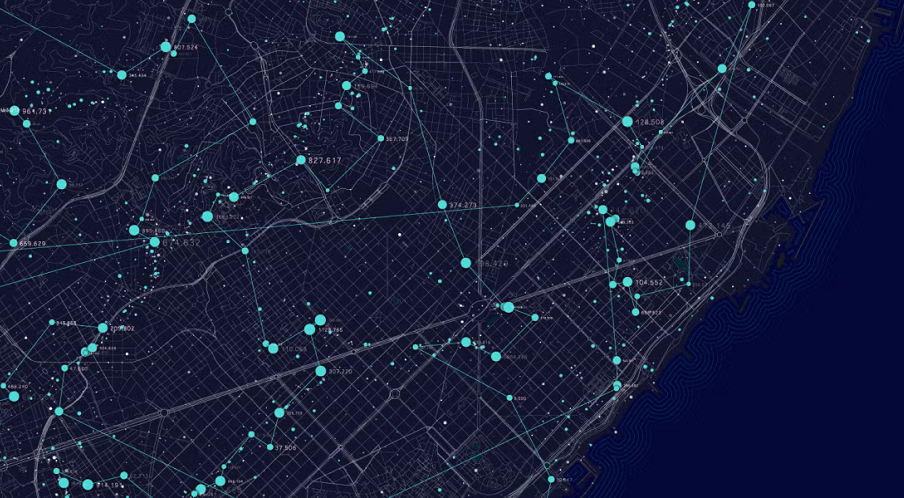 BIG DATA
BIG DATA
 BIG DATA
BIG DATA
 BIG DATA
BIG DATA
The Overture Maps Foundation, a consortium backed by several major tech firms, today made its transportation dataset generally available.
The dataset contains information about more than 53 million miles of roads worldwide. The consortium envisions companies using it to power ride-sharing apps, logistics software, navigation tools and a range of other services.
The Overture Maps Foundation was launched in 2022 by a group of tech giants that included Amazon Web Services Inc., Microsoft Corp. and Meta Platforms Inc. Since then, the consortium’s membership has grown to more than two dozen organizations. It operates under the wing of the Linux Foundation.
Overture’s newly released dataset combines aerial road imagery with information about highway signs and traffic rules such as speed limits. Users can also access related data points, including maps of rail and ferry routes. Overture describes the dataset as the “most complex” it has developed to date.
The dataset is largely based on maps from the OpenStreetMap Foundation, a fellow tech nonprofit. It operates an open-source Google Maps alternative of the same. There’s also data from TomTom NV, a publicly traded maker of GPS navigators that helped launch Overture in 2022.
The consortium says its dataset differs from the upstream maps in several ways.
First, Overture scanned the maps for accuracy issues before incorporating them into its dataset. Second, the consortium added a schema that standardizes how the individual data points are organized. According to Overture, this standardized structure makes it easier for applications to consume the information and reduces the risk of processing errors.
The consortium also added a feature called the Global Entity Reference System, or GERS for short. It allows users to extend the dataset by associating external information with specific points on a map.
If one of a delivery company’s drivers reports a lane closure, developers can place a construction sign on the relevant point. GERS can also ingest other data such as information about accidents and construction projects. A companion tool splits maps into smaller, more manageable chunks to ease processing.
Overture sees companies applying the dataset to a range of use cases. Autonomous vehicles can consult the dataset to plan driving routes. A ride-hailing provider, meanwhile, could use it to build a navigation app for drivers. Overture also envisions the dataset finding use among public sector organizations such as municipalities, which can leverage it to inform urban planning decisions.
“The team’s work now lets any application developer take advantage of this dataset and deliver services to businesses and consumers around the world,” said Marc Prioleau, executive director of the Overture Maps Foundation. “Overture data is built open and free for anyone to use, so we expect many innovative use cases across industries, organizations, geographies, and future mapping efforts.”
Going forward, Overture plans to continue enhancing its maps using artificial intelligence and open-source data sources.
Support our mission to keep content open and free by engaging with theCUBE community. Join theCUBE’s Alumni Trust Network, where technology leaders connect, share intelligence and create opportunities.
Founded by tech visionaries John Furrier and Dave Vellante, SiliconANGLE Media has built a dynamic ecosystem of industry-leading digital media brands that reach 15+ million elite tech professionals. Our new proprietary theCUBE AI Video Cloud is breaking ground in audience interaction, leveraging theCUBEai.com neural network to help technology companies make data-driven decisions and stay at the forefront of industry conversations.